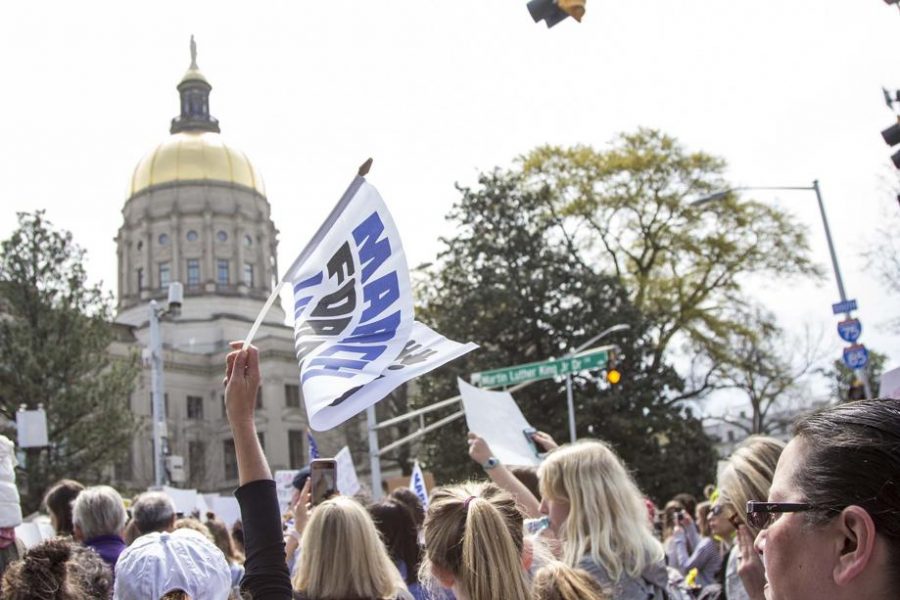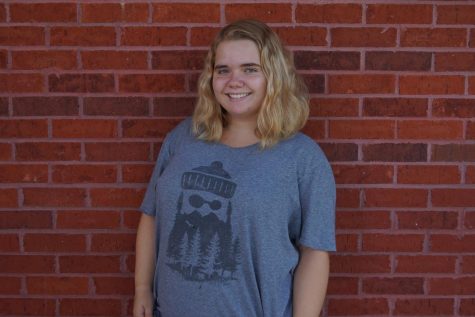Students Take Atlanta by Storm With the “March For Our Lives”
Since the march, national conversation about the right to bear arms and the security of American schools has spread like wildfire through news outlets and social media. While it is a fact that the protesting students made their voices heard, only time will tell if their words and cries will be listened to.
April 18, 2018
Around 11 a.m. on March 24, at the Center for Civil and Human Rights in downtown Atlanta, hundreds of students and their supporters took to the streets to protest gun violence in America. They marched as part of a worldwide movement (with satellite protests across the country as well as in Tokyo and other locations across the globe) called “March For Our Lives,” created in response to the Feb. 14 school shooting in Parkland, FL that left seventeen people dead.
Police blocked off several streets in Atlanta for the march and carefully watched over the protests, but all across the nation, the marches remained peaceful with few counter-protests. Atlanta protesters said that they felt safe and there was “a really good feeling of community” among the marchers.
Following the shooting in Parkland, outrage spread across the nation at the frequency of deadly gun violence (specifically in schools). The March For Our Lives was organized primarily by student survivors of that very shooting, who spent weeks preparing the country’s youth to make their voices heard.
The protests served as a peaceful plea for government action. Many supporters of the March For Our Lives urged lawmakers to create change in the United States’ gun laws, whereas some saw the march as simply an act of solidarity, standing with the survivors of the Parkland shooting.
Since the march, national conversation about the right to bear arms and the security of American schools has spread like wildfire through news outlets and social media. While it is a fact that the protesting students made their voices heard, only time will tell if their words and cries will be listened to. They carried signs with slogans such as “never again” and “enough is enough,” and while all can agree that gun violence in American schools is a tragedy, the debate of how to address the situation still stands.




